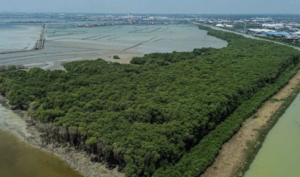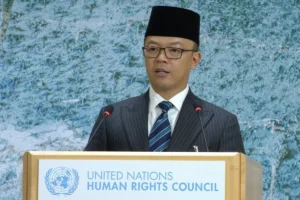Nusantara Capital Authority Prioritizes Educational Services During IKN Transition

Samarinda, The Gulf Observer: The Nusantara Capital Authority (OIKN) highlighted the critical importance of maintaining high-quality basic services, particularly in education, during the transition period of the new Indonesian capital (IKN). Deputy for Socio-Cultural and Community Empowerment of OIKN, Alimuddin, emphasized in Samarinda on Saturday that educational services in Nusantara should be on par with those in Jakarta.
“Currently, we are collaborating to enhance the capacity and skills of existing teachers as a first step in improving education services,” Alimuddin stated.
Alimuddin revealed that cooperation with the East Kalimantan Province Education and Culture Service commenced in 2023 to elevate the quality of education at IKN. Efforts are being made to accelerate improvements in educational infrastructure and teaching staff in the current IKN area.
He stressed the importance of adopting best practices from private schools that have shown success in increasing educational capacity. “We aim to integrate these successful models into the state education system,” he remarked.
The OIKN is also preparing an education roadmap intended to guide the enhancement and refinement of existing education policies. “Our goal is not a revolution but improvements to make education services more agile,” he remarked.
Alimuddin expressed optimism that IKN will set a benchmark for educational quality improvement across Indonesia. “We are committed to implementing meaningful and sustainable changes,” he noted.
However, Alimuddin acknowledged several challenges in implementing the concept of Independent Learning. “Policies from Jakarta take time to be adopted immediately, and local issues can slow this process,” he stated.
He emphasized the need for a comprehensive change in the education ecosystem, involving school principals, teachers, and other stakeholders. “Changing the mindset of just one or two people is insufficient; the entire ecosystem needs transformation,” he stressed.
The IKN area, with approximately 330 schools, presents an opportunity to implement the Independent Learning concept more effectively in stages due to its smaller population and fewer schools compared to Jakarta.
Alimuddin also discussed revising the approach to early childhood education by extending the maximum learning age from six to eight years, emphasizing the need for young children to have more time to move and play.
“With concrete plans and steps, the IKN transition period will usher in a new era of education that is more inclusive, dynamic, and oriented towards the future needs of the young generation,” he explained.


